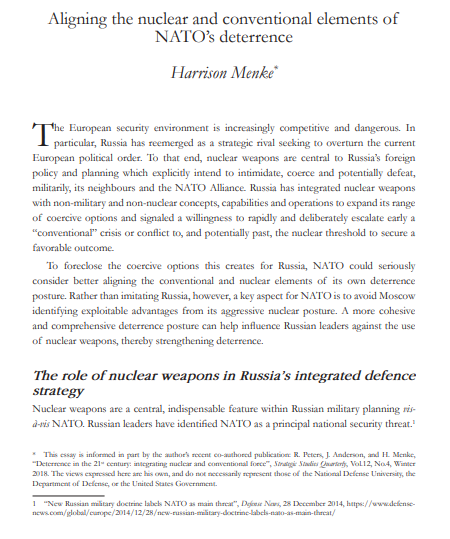
The European security environment is increasingly competitive and dangerous. In particular, Russia has reemerged as a strategic rival seeking to overturn the current European political order. To that end, nuclear weapons are central to Russia’s foreign policy and planning which explicitly intend to intimidate, coerce and potentially defeat, militarily, its neighbours and the NATO Alliance. Russia has integrated nuclear weapons with non-military and non-nuclear concepts, capabilities and operations to expand its range of coercive options and signaled a willingness to rapidly and deliberately escalate early a “conventional” crisis or conflict to, and potentially past, the nuclear threshold to secure a favorable outcome.
To foreclose the coercive options this creates for Russia, NATO could seriously consider better aligning the conventional and nuclear elements of its own deterrence posture. Rather than imitating Russia, however, a key aspect for NATO is to avoid Moscow identifying exploitable advantages from its aggressive nuclear posture. A more cohesive and comprehensive deterrence posture can help influence Russian leaders against the use of nuclear weapons, thereby strengthening deterrence. READ MORE>>>